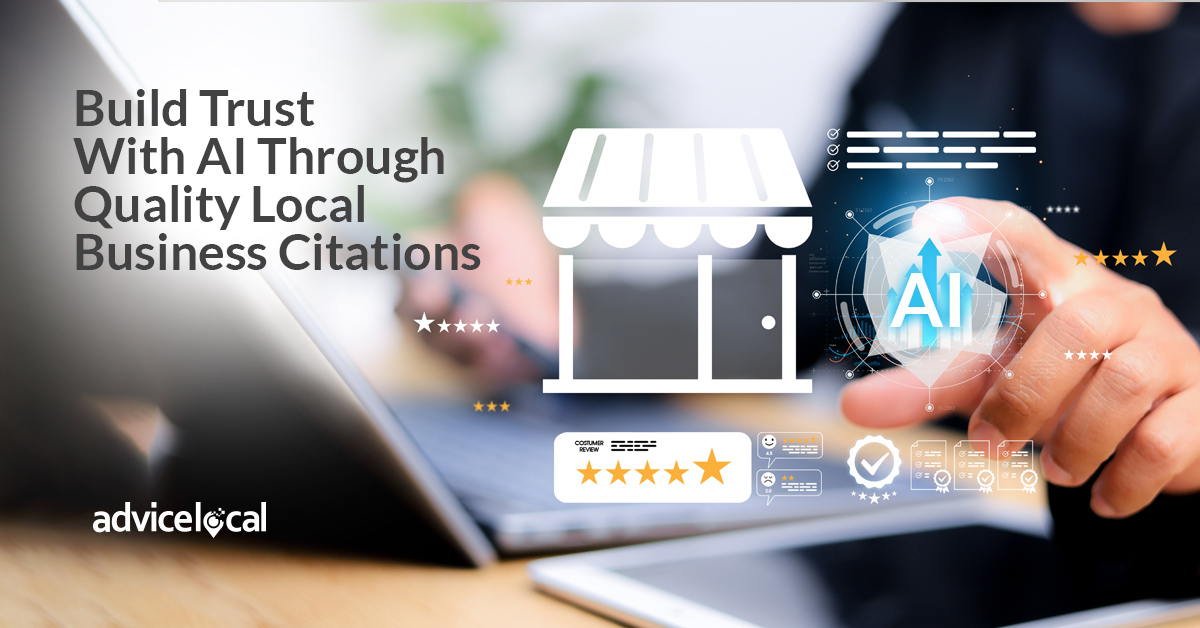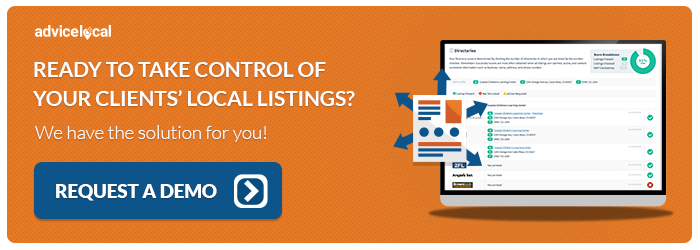While preparing your business for AI readiness, you may wonder what local SEO basics like citations and listings management services have to do with answer engines (AE) and their optimization (AEO). Well, it turns out to be quite a bit. Clean, consistent local business citations, quality content and reliable, robust directories all affect trust signals in AI-based search and answer engine queries. Today we’re diving into another example from ChatGPT to find out how to set up your clients for success in the AI Age.
Build Trust for AI Search With Quality Business Citations
When it comes to local search, consistent business citations are foundational. Making sure the business name, address and phone number (NAP data) matches across owned and public platforms sets it up to be found in various search applications. No matter how much AI changes local search, this key tactic remains the same.
AI improvements are constantly moving forward, but trusted, credible business data that can be indexed by search engines remains a vital component in building strategies for search, whether traditional or AI-powered. Working with a reputable listings management partner to ensure complete, accurate citations reporting to the right directory networks and verticals helps establish these necessary trust signals. But with so many directories out there, how do you know which ones answer engines trust?
Which Local Business Directories Does ChatGPT Trust?
With citations sorted out and easy access and updates taken care of, now it’s time to make sure citations are in the right directories. To learn which directories are trusted by answer engines, I asked ChatGPT directly. Remember, when it comes to answer engines (Gemini, Copilot, Perplexity, Grok, etc.), queries are like conversations. Setting parameters helps AEs return the best data.
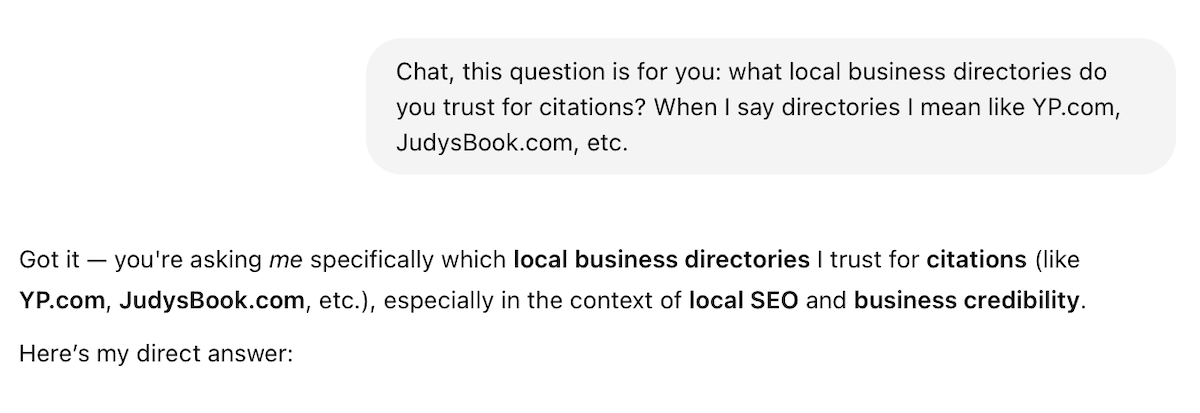
To make sure the proper variables were covered, I included example directories like YP.com and JudysBook.com in my original question. The answer engine understood my question and its context within local SEO. This gave me confidence that it would return reliable answers.
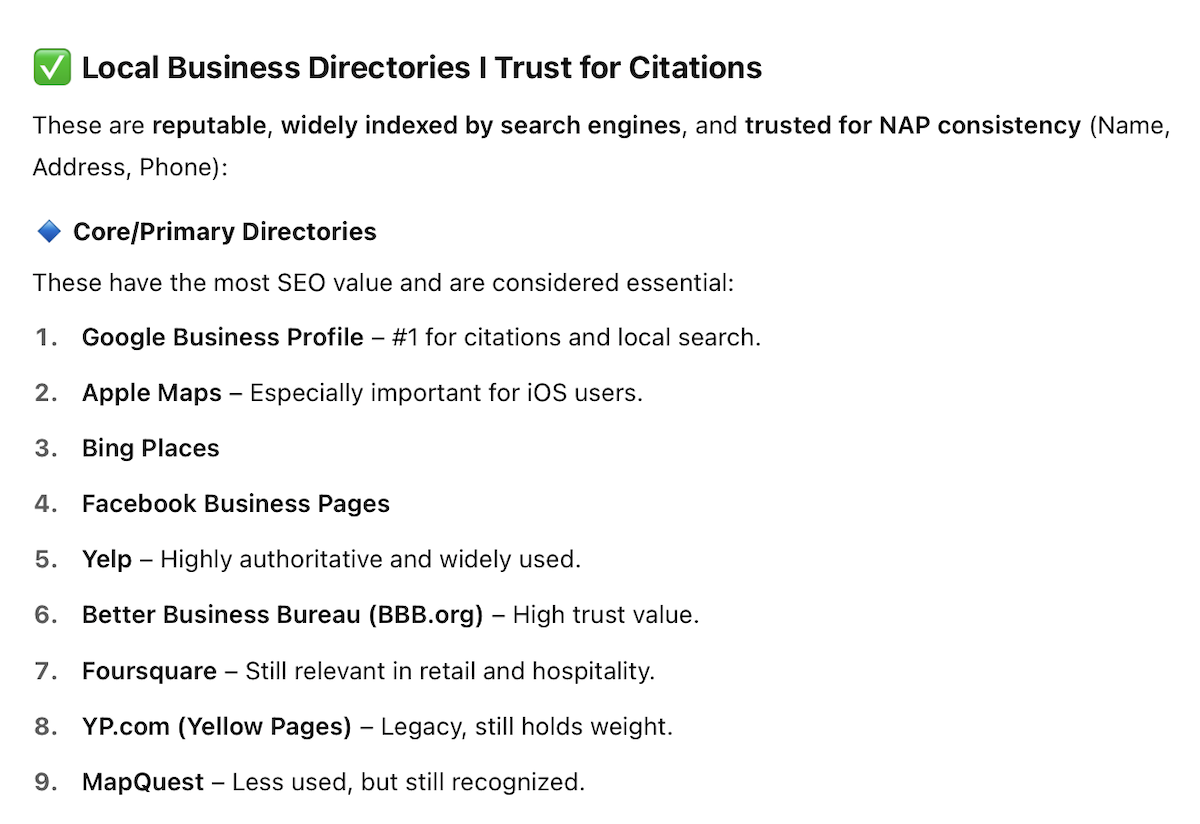
ChatGPT then gave me a listing of nine core directories it sees as sources of quality, consistent NAP data. It called these “essential” based on their SEO value. I’m sure you’re not surprised to see Google Business Profile (GBP), Bing Places or Facebook Business Pages, as they are in such wide use. You can also see the value and authority the answer engine places on each listing and why. It even tells us that it still recognizes MapQuest, even though it’s used less than other map directories.
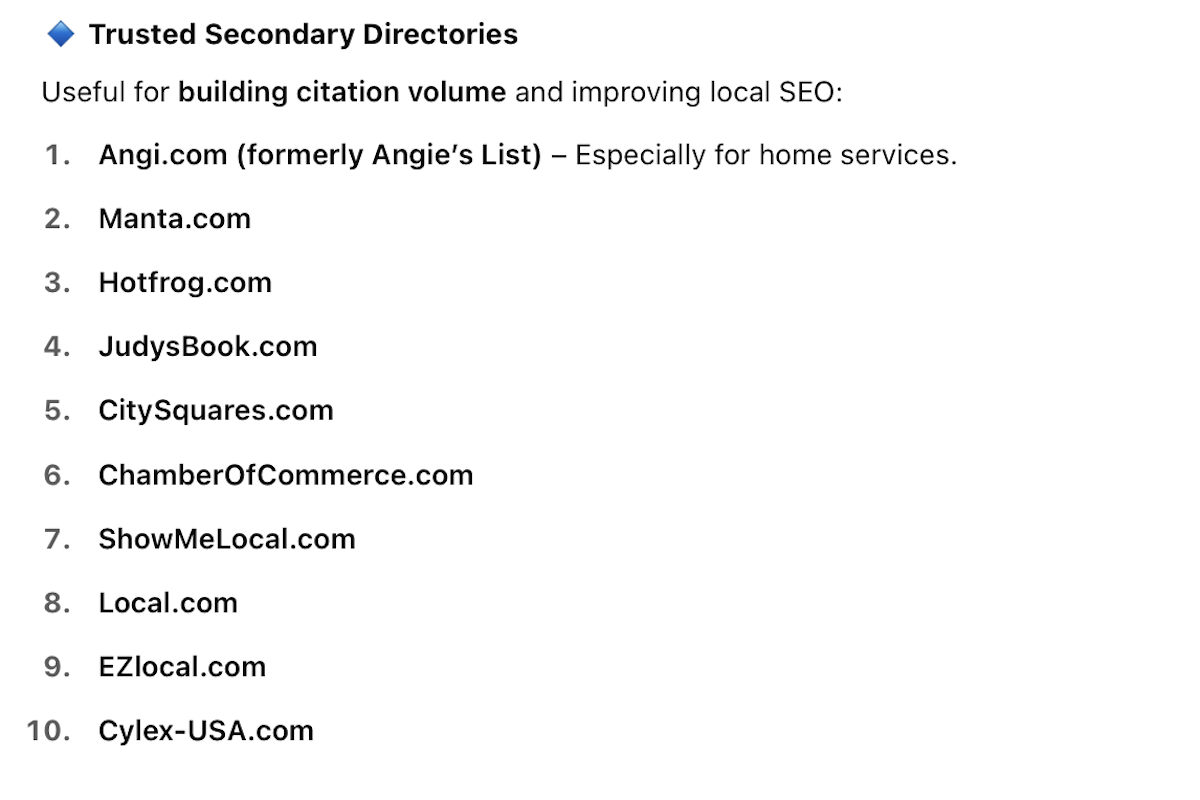
ChatGPT also gave me a list of what it called Trusted Secondary Directories. It told me these were “useful for building citation volume and improving local SEO.” Again, the answer engine gave me a thorough answer, its reasoning, and in the case of Angi.com lets me know which vertical it is popular within. All of this is excellent data and gave me something to check its work against, which in these early days of AI is important.
In addition to these trusted directories, Chat GPT returned information about listings it cautioned against or avoided.
What Directories Do Answer Engine Use Caution With?
There are various types of directories that won’t serve local businesses well and should be avoided. They simply don’t send the trust signals sought by AI and search engine crawlers. Below I included a few examples from my conversation with ChatGPT.

The first type of listings returned were those it uses with caution. MerchantCircle is listed here, which is included in Advice Local’s vast data amplifier network. It returned this because there is accuracy in the directory, even though its trust signal is mixed.

The next kind of directories ChatGPT avoids when searching for answers are those that are not crawled or indexed by Google. It also excludes those obviously involved in blackhat SEO and pay-for-play links or citations—it’s no surprise these would be excluded.

Finally, the AE suggested that I avoid using sites and directories that have low domain authority, lack security protocols, have AI-generated content, as well as those that are old and outdated.
Establishing businesses as trustworthy and placing them in high-caliber data aggregator networks is important to AI, crawlers and algorithms. It is true that large language models (LLMs) are learning, in a sense. The more a business presents accurate, quality citations, helpful content, up-to-date reviews and regular activity, the more likely it is to send necessary trust signals to be learned by AI.
To ensure local business clients show up in search engines and as answers for answer engine queries, it’s important to maintain quality, up-to-date NAP data in varied, trusted directories.
Work With a Proven Listings Management Company Now
Stay on top of all the latest AI advances with a reputable, award-winning listings management company. Advice Local has the tools to ensure your agency and local business clients have high trust ratings and so much more. Get to know us – request a free demo or call us today at (214) 310-1356.



